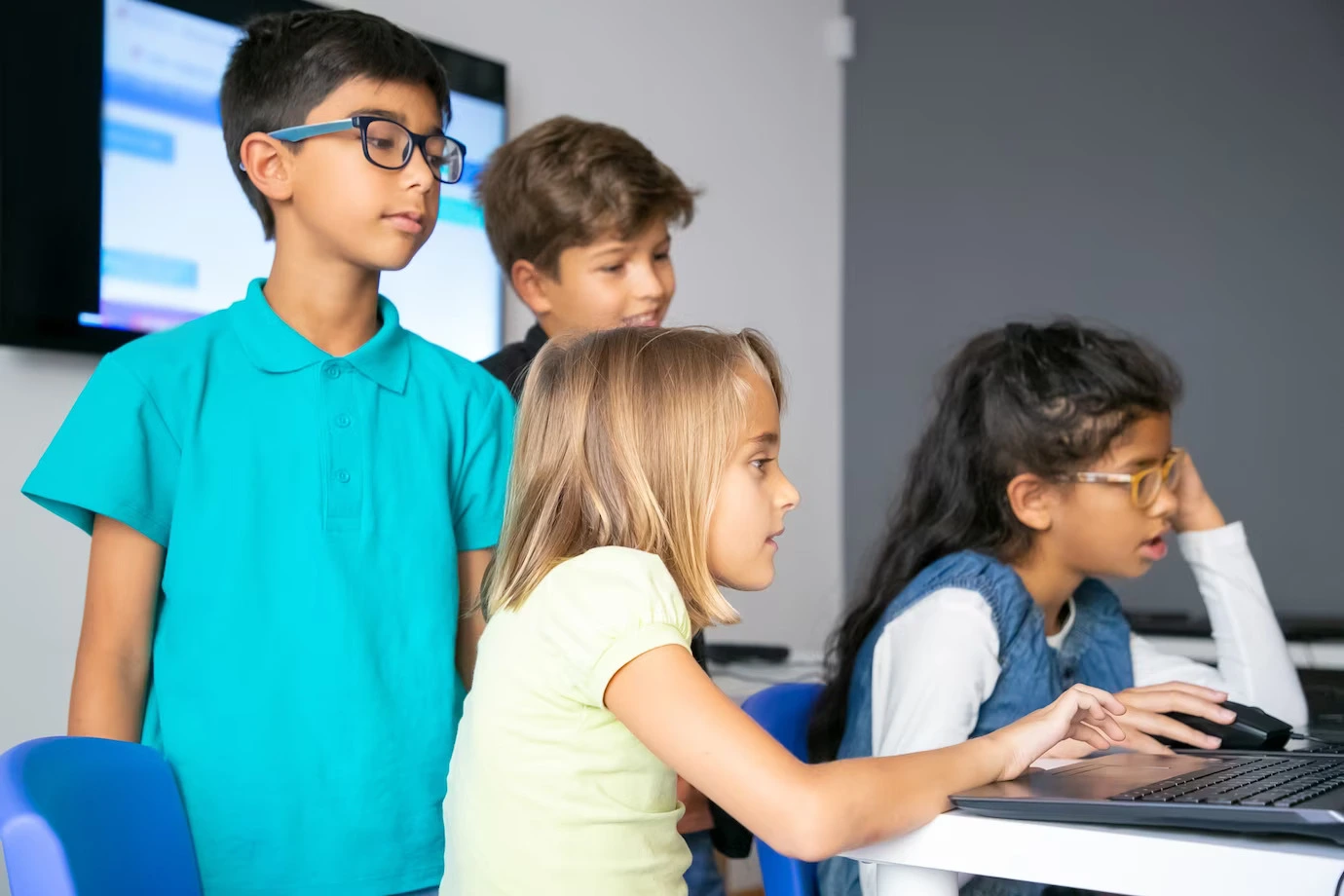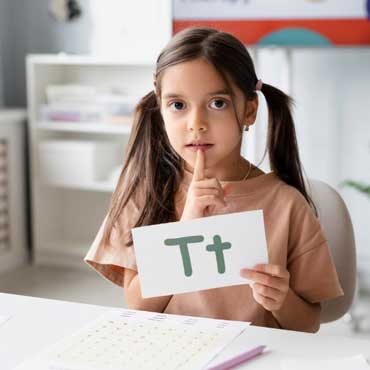Education is the cornerstone of personal and societal development. As we look to the future, the landscape of education is evolving rapidly, driven by advancements in technology, changing pedagogical approaches, and a deeper understanding of how students learn. Year 6, typically the final year of primary school in many educational systems, is a crucial stage in a student's journey. It serves as a bridge between primary education and the challenges of secondary education. In this comprehensive guide, we will explore the future of learning for Year 6 students, examining the key trends and innovations that are reshaping their educational experience.
The Changing Landscape of Education
Before we delve into the future of learning for Year 6 students, it's essential to understand the broader shifts occurring in the education landscape. These shifts are instrumental in shaping the educational experience of Year 6 students and setting the stage for their future learning journeys.
Technology Integration: Technology has become an integral part of education. Digital tools, online resources, and interactive platforms are transforming the way students access information and engage with content.
Personalization: The concept of personalized learning is gaining prominence. Educators are recognizing the importance of tailoring instruction to individual student needs, abilities, and learning styles.
Blended Learning: Blended learning models, combining in-person and online instruction, are becoming the norm. This approach offers flexibility and caters to diverse learning preferences.
Project-Based Learning: Project-based learning emphasizes hands-on, collaborative projects that foster critical thinking, problem-solving, and real-world application of knowledge.
Assessment Reforms: Assessment methods are evolving to focus on holistic evaluations, including performance tasks, portfolios, and formative assessments that provide ongoing feedback.
Global Perspective: Education is increasingly viewed from a global perspective. Students are exposed to diverse cultures, ideas, and global challenges, preparing them for a more interconnected world.
The Future of Learning for Year 6 Students
As Year 6 students stand at the crossroads of their educational journey, several key trends and innovations are shaping their learning experiences:
1. Personalized Learning Pathways:
The future of Year 6 education is characterized by personalized learning pathways. Educators are leveraging technology and data analytics to tailor instruction to each student's strengths, weaknesses, and interests. Adaptive learning platforms help students progress at their own pace, ensuring that they master essential skills before moving on.
2. Blended Learning Environments:
Year 6 students are benefiting from blended learning environments that combine the best of both physical and digital worlds. This approach allows for more flexibility, as students can access content online, collaborate with peers, and engage in hands-on activities in the classroom.
3. Digital Literacy and Critical Thinking:
Digital literacy is no longer an optional skill; it's a necessity. Year 6 students are learning not just how to use technology but also how to critically evaluate information, discern credible sources, and engage responsibly in digital spaces.
4. Project-Based and Experiential Learning:
Project-based and experiential learning are gaining prominence. Year 6 students are taking on real-world challenges, working on interdisciplinary projects, and applying their knowledge to solve practical problems.
5. STEAM Education:
STEAM (Science, Technology, Engineering, Arts, and Mathematics) education is a focal point. Year 6 students are encouraged to explore these subjects holistically, fostering creativity, innovation, and a deeper understanding of the interconnectedness of these disciplines.
6. Social-Emotional Learning (SEL):
Emotional intelligence and social skills are recognized as essential competencies. Year 6 students are provided with opportunities to develop self-awareness, empathy, and effective communication, which are critical for success in school and life.
7. Formative Assessment and Continuous Feedback:
Assessment has shifted towards a more formative and ongoing approach. Year 6 students receive regular feedback that helps them understand their progress, identify areas for improvement, and set goals for growth.
8. Global Awareness and Cultural Competence:
Year 6 education emphasizes global awareness and cultural competence. Students are exposed to diverse perspectives, fostering a sense of empathy and an understanding of global issues.
9. Interdisciplinary Learning:
Interdisciplinary learning bridges traditional subject boundaries. Year 6 students explore topics from multiple angles, encouraging a holistic understanding of complex issues.
10. Collaboration and Communication Skills:
Collaboration and communication skills are emphasized. Year 6 students engage in group projects, discussions, and presentations, preparing them for future teamwork and effective communication.
Rurera's Vision for Year 6 Education
Rurera, a leading education and learning platform, is committed to reimagining Year 6 education in line with these emerging trends and innovations. Here's how Rurera envisions the future of learning for Year 6 students:
1. Personalized Learning Journeys:
Rurera's platform offers personalized learning pathways for Year 6 students. Each student's journey is unique, and tailored to their specific needs, strengths, and interests. Adaptive quizzes and assessments provide insights to educators, enabling them to offer targeted support.
2. Blended Learning Environment:
Rurera's platform seamlessly integrates online and in-person learning. Year 6 students can access a wealth of digital resources while enjoying the benefits of face-to-face interactions with educators and peers.
3. Comprehensive STEAM Education:
Rurera places a strong emphasis on STEAM education. Year 6 students can explore STEAM subjects through interactive modules, hands-on experiments, and projects that encourage creativity and critical thinking.
4. Social-Emotional Learning (SEL) Support:
Rurera incorporates social-emotional learning into its curriculum. Year 6 students have access to resources and activities that foster self-awareness, emotional intelligence, and interpersonal skills.
5. Real-World Application:
Rurera's curriculum includes real-world application projects. Year 6 students can engage in activities that connect classroom learning to practical, real-life scenarios.
6. Continuous Feedback and Assessment:
Rurera's platform provides continuous feedback and assessment. Year 6 students receive ongoing insights into their progress, allowing them to take ownership of their learning journey.
7. Global Perspective:
Rurera's content exposes Year 6 students to a global perspective. They can explore topics that span cultural boundaries and gain a deeper understanding of the world around them.
8. Collaboration and Communication:
Collaboration and communication are integral to Rurera's approach. Year 6 students can collaborate on projects, engage in discussions, and develop strong communication skills.
Case Study: Mia's Year 6 Journey with Rurera
To illustrate the future of learning for Year 6 students using Rurera's platform, let's follow the educational journey of a fictional student named Mia:
Mia, a Year 6 student, joins Rurera's platform:
Personalized Learning Path: Mia starts her journey by taking an assessment quiz on Rurera's platform. The results help create a personalized learning path tailored to her strengths and areas for improvement.
Blended Learning Experience: Mia enjoys a blended learning experience, attending school in person and accessing Rurera's platform at home. She uses interactive modules to reinforce what she learns in class.
STEAM Exploration: Mia has a passion for science and art. Rurera's platform offers STEAM-focused projects that allow her to explore her interests, such as creating a digital art project inspired by scientific concepts.
SEL Development: Mia participates in SEL activities on the platform. She engages in discussions about empathy, self-awareness, and effective communication, enhancing her social-emotional skills.
Real-World Application: Mia takes on a community project through Rurera's platform. She and her classmates collaborate to address a local environmental issue, applying their knowledge to create practical solutions.
Continuous Feedback: Rurera's platform provides Mia with ongoing feedback through quizzes, assessments, and peer evaluations. She uses this feedback to set goals and track her progress.
Global Awareness: Mia explores global issues through Rurera's content. She participates in virtual discussions with students from around the world, gaining a broader perspective on global challenges.
Collaborative Projects: Mia works on interdisciplinary projects with her peers. They research, plan, and present solutions to complex problems, fostering teamwork and effective communication.
Mia's journey exemplifies how Rurera's platform supports Year 6 students in their educational and personal growth, preparing them for the challenges and opportunities that lie ahead.
Conclusion: Elevating Year 6 Education for a Brighter Future.
The future of learning for Year 6 students is bright and promising. With advancements in technology, a focus on personalized learning, and an emphasis on critical skills such as digital literacy and social-emotional learning, Year 6 education is evolving to meet the needs of a changing world.
Rurera's vision for Year 6 education aligns seamlessly with these emerging trends and innovations. By offering personalized learning journeys, a blended learning environment, comprehensive STEAM education, social-emotional learning support, real-world application, continuous feedback, global perspectives, and collaborative opportunities, Rurera empowers Year 6 students to thrive in a future that demands adaptability, creativity, and a passion for learning.
As Year 6 students embark on their educational journeys, they have the opportunity to explore, discover, and build the foundational skills and knowledge that will serve as the launchpad for their future success. With the right tools, resources, and support, the future of learning for Year 6 students is indeed a path to brighter horizons and boundless possibilities.
- Why everybody needs a brand
- Find yor propostion, personality and purpose
- Freelancing tips: How you can usebrand propostion
- Useful resources for your Freelancing business
- Create a brand with value



